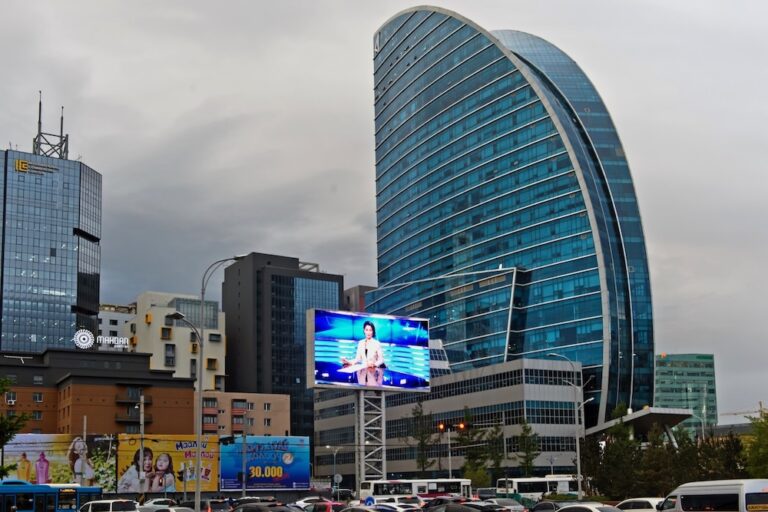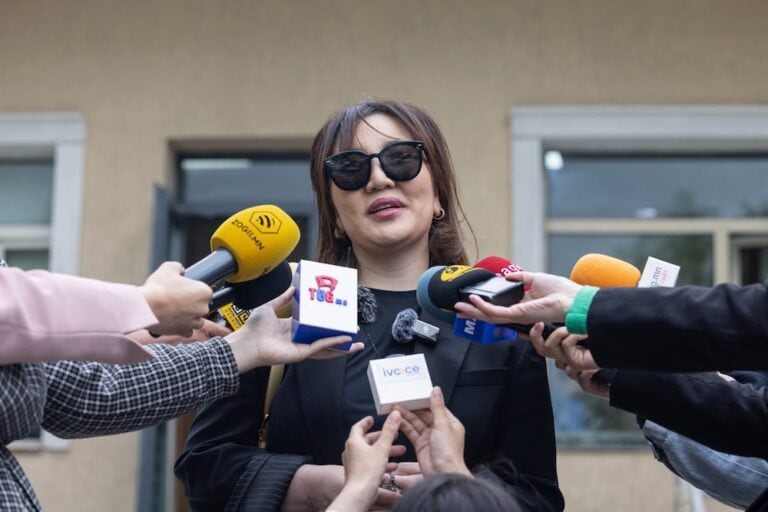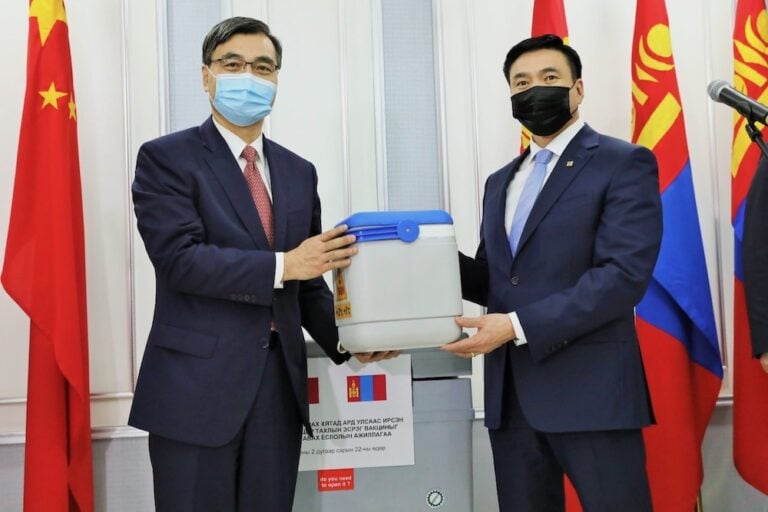(Globe International/IFEX) – Please note, it was previously stated that the “Forbidden to watch” programme had covered the privatisation process of the Erdenet mining industry. Globe International clarifies that the state has not privatised the Erdenet industry, nor is it intending to. Globe International and the IFEX Clearing House apologise for the error. The corrected […]
(Globe International/IFEX) – Please note, it was previously stated that the “Forbidden to watch” programme had covered the privatisation process of the Erdenet mining industry. Globe International clarifies that the state has not privatised the Erdenet industry, nor is it intending to. Globe International and the IFEX Clearing House apologise for the error.
The corrected version of the alert follows:
On 6 July 2006, B. Tsevegmid, the editor-in-chief of Nomin television station, based in the northern province of Orkhon, was beaten at the entrance of her building and had to be hospitalised for treatment. Before being attacked she had received many threats by telephone concerning an investigative television programme, “Forbidden to watch,” which covered the Erdenet mining industry employees’ privatisation vouchers.
On 11 June, “Forbidden to watch” reported on the fate of privatisation vouchers for 9,000 employees of the Erdenet mining industry. After the television programme, unknown people threatened Tsevegmid over the phone. The director of the Erdenest brokerage company, which held the vouchers, also warned the journalist, “It is a very complicated issue, you could be killed.”
On 8 July, local journalist A. Naranbold, who is actively working for the rights of his colleague, contacted his coworker by phone during her recovery. Tsevegmid told him, “The entrance was dark and I couldn’t recognise who the attackers were, nor how many people were there.”
Local police are investigating the incident.
In 1990, when the country shifted from a state economy to a free market economy, state property privatisation vouchers were given to every citizen of Mongolia. The employees of Erdenet mining industry expected the privatisation of the industry. In turn they took what they thought to be an advantage of privatisation and placed their privatisation vouchers in the Erdenest brokerage company. However, during this time the government issued a resolution removing the Erdenet industry from the list of state enterprises that were going to be privatised. According to the television programme, the industry employees still have not received any profits from the vouchers and do not know whether the brokerage company is still saving them or has sold them all off. The television journalist tried to clarify if the brokerage company sold the vouchers without the consent of the owners, an action which would violate the rights of employees. Erdenet produces almost 20 million tons of ore per year and 51 percent of the company is owned by Russia. The remaining property continues to be owned by the state.
Globe International issued a media release on the incident and informed the Mongolian Journalists’ Association. The local branch of the Mongolian United Journalists’ Association (MUJA) also issued a press release on the incident and urged the head of MUJA to pay more attention to protecting the rights of journalists and supporting them. They stressed that, “several member journalists of MUJA have been attacked while exercising their professional duties and for revealing unlawful activities in our society.”


